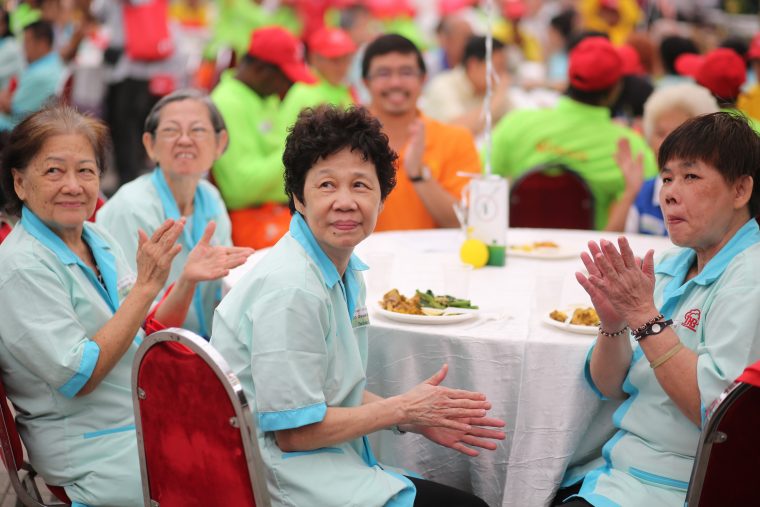You may or may not have heard that some new laws were passed in Parliament to ensure that Singaporean and Permanent Resident cleaners hired by agencies and under the Progressive Wage Model (PWM) will be guaranteed a raise of at least 3 per cent per year over three years, as well as an annual bonus of at least two weeks' salary, starting 2020.
In a joint statement by the Ministry of Manpower and the National Environment Agency, the government said of the changes to the PWM for cleaners:
"This will help uplift workers’ total income levels and their savings, and motivate them to stay with the same employer. Employers will be better able to attract and retain workers, and to invest in their training when there are better retention rates."
All cleaning businesses in Singapore will have to put in place the bonuses from January 1, 2020 — giving lead time of "at least a year" for the industry to adopt the change.
They will have until July 1, 2020, to implement the 3 per cent pay raises in all contracts for cleaners.
Bonus applicable to cleaners who have worked with same agency/company for at least a year, not tied to performance
According to additional details on the bonus and pay increments tabled by the Tripartite Cluster for Cleaners (which includes unions, employers, service providers and large companies that engage contract cleaning services, as well as government reps), Singaporean and PR cleaners who have worked for the same agency for at least 12 months will get a minimum two-week salary bonus.
It will not be tied to their individual performance, so it can be seen as a pure booster to their salaries and cannot be denied to any qualifying cleaner.
If the cleaner is shifted from one company to another for reasons beyond their control, they should also be paid the bonus even if they have worked at the company less than a year. This bonus will have to be paid out once or twice per year.
Should a cleaner be let go from their job, whether for retirement or medical reasons, their bonuses must be paid to them by their last day working at the company. Exceptions are made only for those who quit of their own accord, but the bonus must not be clawed back from them.
Part-time cleaners are also entitled to the bonus, as long as they have worked for the same company for more than a year, and it will be pro-rated based on the hours worked in a given year.
Some cleaners were not previously classified as cleaners
Up till now, some people performing cleaning duties were not counted as cleaners, and therefore may not have qualified for these small, but still necessary wage and bonus legislative changes.
The Tripartite Cluster called these out, and recommended that they also be counted as cleaners so they can benefit from these changes as well.
These folks include:
- Cleaners who stand at tray return stations at food centres, and
- Cleaners who are employed at a wide variety of healthcare institutions not restricted to "hospitals and polyclinics"
In conclusion, the cluster said in its statement:
"With the strong support of the tripartite partners, the introduction of a mandatory PWM Bonus is indeed a positive change for our resident cleaners as it will uplift their overall wages and add to their savings. Our cleaners will thus be more motivated to stay longer with their employers, and their employers will in turn be more inclined to send them for training which will help to raise productivity. Service Buyers and end users of cleaning services can look forward to better service outcomes and standards. This will bring about a win-win outcome for all stakeholders."
What is the PWM?
The PWM, according to the MOM, is "a productivity-based wage progression" model for the cleaning, security and landscape sectors.
The model was designed to "increase wages of workers through upgrading skills and improving productivity" and the increased productivity is supposed to improve "business profits for employers".
The PWM also gives a salary floor for these workers -- a minimum of S$1,060 per month for general cleaners and S$1,660 for cleaning supervisors.
For security officers, the PWM mandates that a entry-level security officer is paid at least S$1,100 monthly. A senior security supervisor, who has gone for the necessary training and certification, has to be paid at least S$1,700 monthly.
More related reading:
Top photo via NTUC U Care Centre
If you like what you read, follow us on Facebook, Instagram, Twitter and Telegram to get the latest updates.
